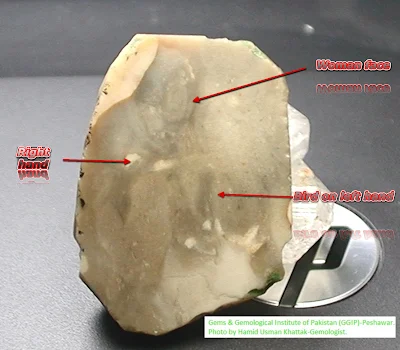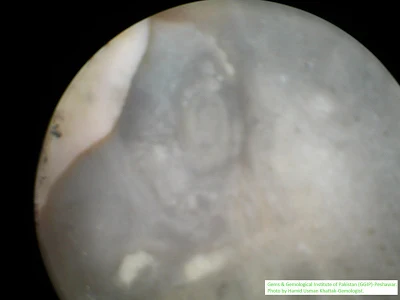This Mysterious Stone Reveals the Face of an Old Lady – Naturally Formed or Nature’s Art?
Discover a rare mimetolith – a naturally occurring stone that eerily resembles the face of an old lady. Nature’s sculpture or just coincidence? You decide
Have you ever seen a stone so realistic, it seems like Mother Nature carved it herself? You're about to witness one of the most intriguing mimetoliths ever discovered – a naturally formed chert stone with the astonishing topographic appearance of an old lady's face. This isn’t a sculpture or a manmade carving – it’s 100% natural.
What is a Mimetolith?
A mimetolith is a naturally occurring rock, mineral specimen, or loose stone that resembles the shape or pattern of something recognizable, like a human face, animal, tree, or even a plant. These fascinating forms are created by millions of years of geological activity, erosion, and mineral deposit patterns.The Viral Stone: A Chert with a Story to Tell
The stone in the image is a piece of chert, a hard and fine-grained sedimentary rock known for its durability and unique visual features. What makes this specimen truly extraordinary is the clearly visible formation that mirrors the profile of an elderly woman, complete with what appears to be facial contours, eyes, a nose, and even a suggestion of wrinkled skin.
Why This Mimetolith Is Going Viral
-
The resemblance is shockingly lifelike
-
It’s a one-in-a-million geological formation
-
Viewers are calling it “Nature’s Mona Lisa”
-
It's sparking debate: natural coincidence or divine artistry?
Perfect for Rock Collectors and Mystery Lovers
Whether you’re a passionate geology enthusiast, a lover of natural wonders, or someone fascinated by pareidolia (the human tendency to see faces in objects), this mimetolith is bound to capture your imagination.








2 comments:
Amazing, isn't it? This piece you present is among countless others. Obscure, intriguing, and surreal...so much in fact that many other viewers believe it is unreal and purely imagination. I know otherwise, but have yet to find purpose in it. Mostly i experience a near overwhelming sense of awe towards this subject.
First of all very sorry for late reply. I want to answer your question as following
Mr. Benjamin M. Shaub, then a professor of geology at Smith College, Northampton, wrote an article "Seeing things in rocks and minerals? Why?" that was published in Rocks and Minerals in 1961*. Massachusetts.
The article starts out with the following statements:
"For some people, ... it appears that their chief enjoyment in rocks and minerals is based largely on what objects they can see in the pieces that appear familiar to them when they look at the various shapes and configurations that these natural objects assume .... This game is so intriguing to some of the members of our mineral and rock fraternity that they specialize in collecting such oddities. They have fun! And their collections are the source of entertainment for their friends and most visitors."
With regards
Post a Comment